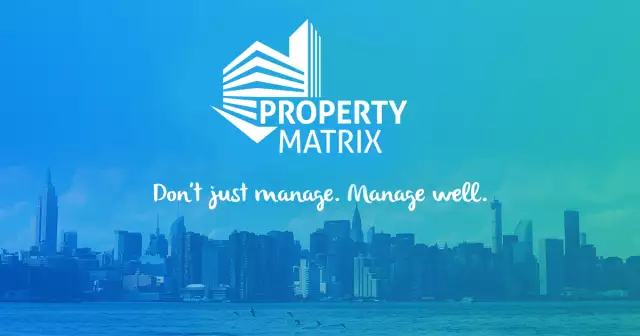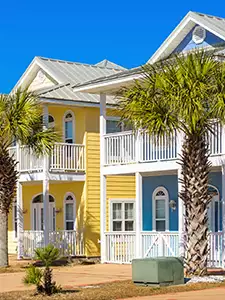17 Questions to Ask Before Partnering with a Commercial Property Manager
17 Questions to Ask Before Partnering with a Commercial Property Manager

Choosing the right commercial property manager is one of the most important decisions you will have to make as a real estate investor. The right person can be a true partner who guides and coaches you towards your investment goals. The wrong person can cause a lot of problems and financial repercussions. Here are 17 questions to ask before partnering with a commercial property manager.
1. What services do they provide?
If you think you’ve found a commercial property manager to partner with, the first thing you should do is find out what kinds of services they are willing and able to provide. You want to be sure that they help you meet your investment goals. You will also want them to adapt their approach and reporting methods to your requirements.
2. How much experience do they have in the commercial sector?
Managing commercial properties is vastly different from managing residential ones. A property manager should have a minimum of 3 years experience but ensure that this experience was in managing commercial properties. Don’t settle for someone who has never dealt with a property like yours before.
3. What types of properties do they usually manage?
Unlike residential properties, commercial spaces can be used in various ways and for very different purposes. Find out what kinds of properties your potential property manager is accustomed to managing. Do they have experience dealing with properties of a similar size and scope as yours?
4. Do they know the area?
It’s a good idea to partner with someone who has a presence in the same area as your property. A commercial property manager who knows the area will have in-depth knowledge of local demographics and challenges. They will be in a better position to advise you on issues such as appropriate pricing and valuation.
5. Do they work alone or with a team of property managers?
Some property management companies are operated by a single person while others have numerous employees. Each has their own strengths and weaknesses which is why many investors have a preference. This can also give you an idea of how the organization is structured and who your point of contact will likely be.
6. How often will your property be inspected?
Look for a property manager that will inspect your building at least annually. They should regularly look for issues that might need to be addressed and repairs that should be added to the maintenance schedule. The property manager also needs to ensure that safety measures are in place and the property is compliant.
7. What does the maintenance schedule look like?
Asking about the maintenance schedule will give you an idea of how the commercial property manager operates. Are they proactive and organized? Do they have a planned out maintenance schedule at all?
8. Do they perform a market evaluation for every renewal?
When a lease is up for renewal it is standard practice to raise the rent. A good commercial property manager will help keep your rates competitive by looking at market value in the area.
9. What financial statements do they provide?
It’s your investment and you should regularly receive financial statements. At the very least, the property manager should be able to tell you when you can expect your monthly and annual reports and in what format they will be delivered.
10. What issues will be communicated to you?
This part of the relationship is a little tricky as individual investors have different preferences. Any commercial property manager that you are considering should be open to discussing the types of issues you want to be notified about and the things you don’t want to be bothered with.
11. Do they use any software to streamline their operations?
Quality property management software, such as Property Matrix, goes beyond organizing operations. Property managers should use software with client portals for convenient access to reports and other information.
12. Do they understand legislation and requirements?
Violating legislation can have serious consequences. There could be hefty fines and expensive lawyer fees involved. Any commercial property manager worth considering must have a working understanding of the legal framework of their industry.
13. Are they a licensed and accredited property manager?
In most states property managers are required to have either a real estate broker’s license or a property management license. Find out what the requirements are for your area and make sure your property manager is up to par. It’s wise to choose a professional with at least one credential to certify their experience. Good credentials to look for include Certified Property Manager (CPM), Real Property Administrator (RPA), or Systems Maintenance Administrator (SMA).
14. Are they insured?
If the property manager you partner with doesn’t have insurance you could end up paying for their mistakes. Professional liability insurance protects clients from issues caused by services that were negligent or deficient. Any property manager should have general liability insurance to cover at least $1 million in the event of damage or injury caused by their services or employees. Larger organizations should also have a fidelity bond and depositor’s forgery and alterations insurance.
15. Do they have testimonials from clients or tenants?
You can get an idea of the commercial property manager’s reputation by looking at testimonials from clients and tenants. Ask for references but do some of your own research as well. The internet can be a great source of reviews.
16. What is the fee structure like?
You will undoubtedly have to pay for the property manager’s services. It’s a good idea to make sure that you understand and are comfortable with the fee structure. You will either be charged a percentage of gross receipts, a flat fee, or a hybrid structure where you will be changed the greater of the two. It’s also good to know which characteristics of your property affect the amount you are charged.
17. What services are included in the management fee?
Many commercial property managers charge additional fees for certain services, requests, or incidents. If you want a smooth partnership with a property manager you must be in perfect agreement which services are included in the fee you pay. Neglecting to do so will likely lead to frustrations.
Commercial properties come with unique challenges and opportunities. It’s important to look for a qualified professional who has the right experience managing commercial properties. They must be willing to work with you on your terms and provide the services your portfolio requires. Partner with the right commercial property manager and watch your investment flourish.








